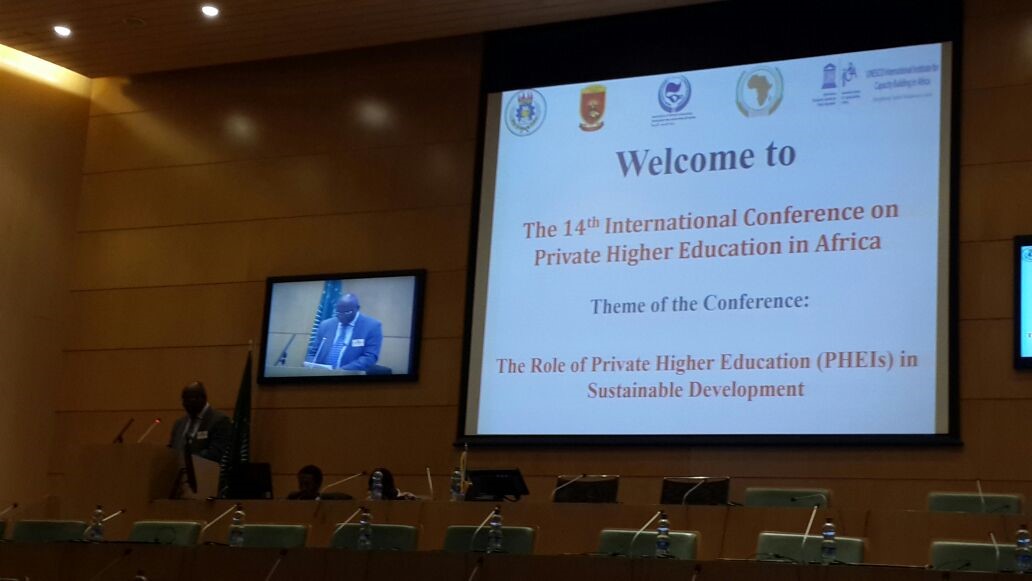- Developmental blue prints in the realm of (private) higher education;
- The role of PHEIs in sustainable development: the case of the ALICT programme;
- An assessment of the risk profile of PHEIs in Ethiopia;
- Access, affordability and quality education for sustainable development: opportunities and challenges;
- Higher education, teacher development, quality and sustainability;
- Global engagement of universities in addressing sustainable development challenges;
- Responsible leadership for learning in an international Master's degree program;
- The importance of using high impact data to make universities competitive;
- Employability skills, entrepreneurship and sustainable development;
- Gender equality, equity and community services.
GESCI’s ALICT program presented at Conference on Private Higher Education Institutions in Africa
GESCI attended the 14th International Conference on Private Higher Education in Africa, which took place in Addis Ababa, Ethiopia, July 12-13, 2017. The theme of this year’s edition was ‘The role of private higher education institutions in sustainable development’.
Debates focused on the role of private higher education institutions (PHEIs) in the advancement of Knowledge Society (KS) and their contribution towards sustainable development. In this context, GESCI presented the African Leadership in ICT and Knowledge Society Development (ALICT) program which seeks to build a critical mass of leaders across Africa with a commanding understanding of, and the skills needed for the advancement of KS, with a particular emphasis on new leadership approaches and new skills for coherent policy development.
The conference was organized by St. Mary’s University in partnership with Association of African Universities (AAU), the African Union Commission (AUC), the Inter-Governmental Authority on Development (IGAD), UNESCO’s International Institute for Capacity Building in Africa (IICBA) and the Federal Ministry of Education, Ethiopia.
It was attended by International NGOs, educators, researchers, higher learning institutions - private and public - policy makers and representatives of regional and international organizations from Africa, Asia, Europe and America.
Key topics addressed by the conferences were the following:

